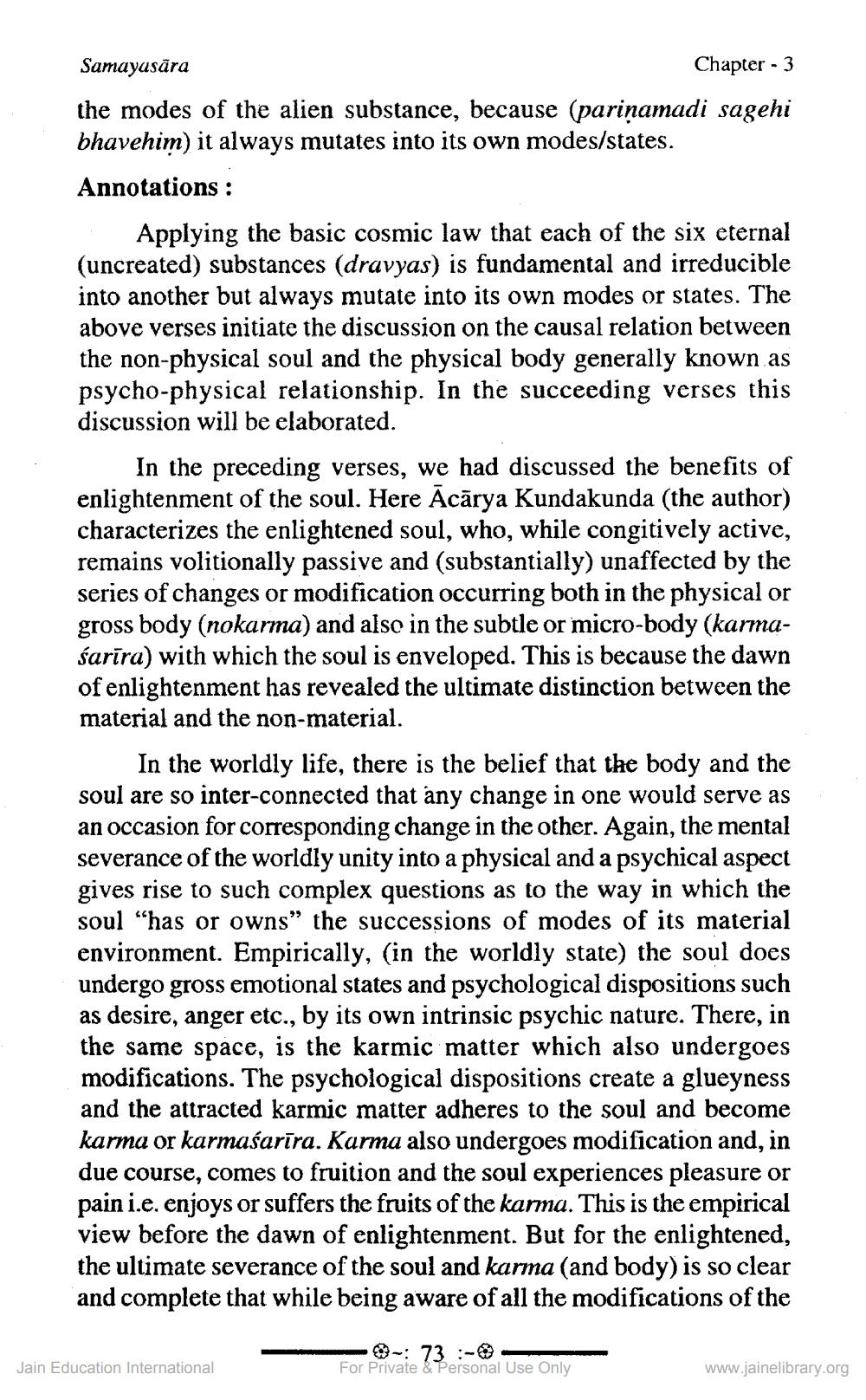________________
Samayasara
Chapter -3
the modes of the alien substance, because (pariņamadi sagehi bhavehim) it always mutates into its own modes/states.
Annotations:
Applying the basic cosmic law that each of the six eternal (uncreated) substances (dravyas) is fundamental and irreducible into another but always mutate into its own modes or states. The above verses initiate the discussion on the causal relation between the non-physical soul and the physical body generally known as psycho-physical relationship. In the succeeding verses this discussion will be elaborated.
In the preceding verses, we had discussed the benefits of enlightenment of the soul. Here Acārya Kundakunda (the author) characterizes the enlightened soul, who, while congitively active, remains volitionally passive and (substantially) unaffected by the series of changes or modification occurring both in the physical or gross body (nokarma) and also in the subtle or micro-body (karmaśarīra) with which the soul is enveloped. This is because the dawn of enlightenment has revealed the ultimate distinction between the material and the non-material.
In the worldly life, there is the belief that the body and the soul are so inter-connected that any change in one would serve as an occasion for corresponding change in the other. Again, the mental severance of the worldly unity into a physical and a psychical aspect gives rise to such complex questions as to the way in which the soul "has or owns" the successions of modes of its material environment. Empirically, (in the worldly state) the soul does undergo gross emotional states and psychological dispositions such as desire, anger etc., by its own intrinsic psychic nature. There, in the same space, is the karmic matter which also undergoes modifications. The psychological dispositions create a glueyness and the attracted karmic matter adheres to the soul and become karma or karmaśarīra. Karma also undergoes modification and, in due course, comes to fruition and the soul experiences pleasure or pain i.e. enjoys or suffers the fruits of the karma. This is the empirical view before the dawn of enlightenment. But for the enlightened, the ultimate severance of the soul and karma (and body) is so clear and complete that while being aware of all the modifications of the
Jain Education International
-: 73 :
For Private & Personal Use Only
www.jainelibrary.org




